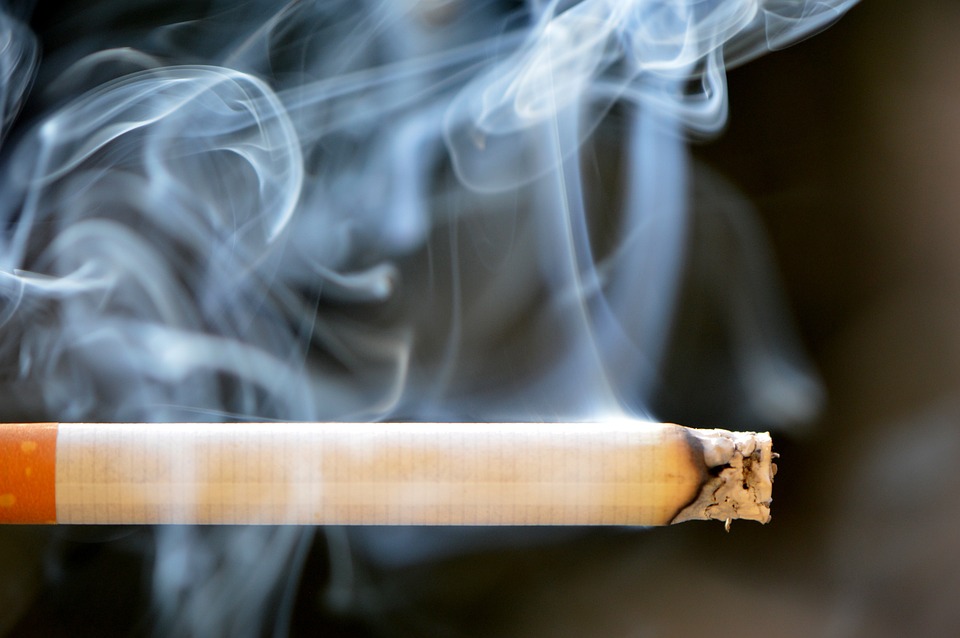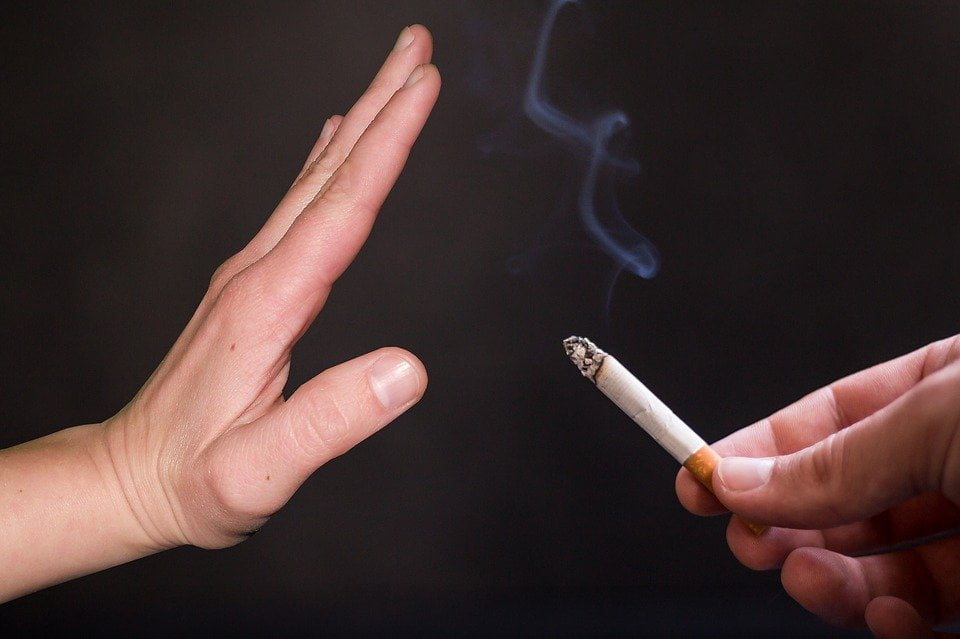It is a common belief that quitting smoking always entails gaining a few extra pounds. We decided to check whether such a pattern exists.
Users explain this for several reasons. Alone writethat nicotine changes metabolism and therefore after quitting a bad habit appear extra pounds. Others point out that when people quit smoking, they instinctively replace cigarette with sweet snacks and various candies to overcome habit. Still others accentuate attention to the fact that nicotine weakens the sensitivity of taste buds. Therefore, rejecting it does our perception of food is more subtle, and the person begins to eat more. One can also find an explanation for this pattern by the fact that nicotine annoys the gastric mucosa, which impairs the absorption of nutrients, and after refusing it, the stomach returns to normal, and the body, receiving the same amount of food, absorbs it more efficiently. The opinion that smoking promotes weight loss is so widespreadthat some specifically start smoke to lose weight faster and easier.
On average, according to scientists, a person dials up to 10 kg after quitting smoking. This weight gain occurs in the first two years after quitting the bad habit. There is no consensus among scientists whether this gain can be called excess weight. Some claim, that “the weight that a smoker can gain after quitting smoking is not excess, but exactly how much he would weigh if he did not smoke.” However, in this case, we are most likely not talking about those who already had excess body weight in parallel with a bad habit. To maintain balance in the text, we will call these kilograms additional.
Nicotine does affect metabolism. It is believed that a fast metabolism (aka high metabolism) allows we have to eat exclusively chips and chocolate, while maintaining a slim figure. Nicotine is capable accelerate our metabolism - even one smoked cigarette increases frequency pulse and increases blood pressure. Moreover, nicotine promotes the release of glycogen, a complex polysaccharide, the high content of which reduces appetite. Nicotine also reduces levels of the hormone ghrelin, which is responsible for feelings of hunger and satiety.
Greek scientists held experiment: volunteer smokers abstained from nicotine for a day, and then were divided into two groups. The first was allowed to smoke a cigarette, the second was only allowed to hold it in his hands, simulating the smoking process. Afterwards, all participants in the experiment were invited to the table. The scientists found no pattern between taste preferences between the two groups (sweet or salty), but noted that those who did not receive a dose of nicotine consumed an average of 152 calories more. There was also a statistically significant difference in ghrelin in the blood samples of the subjects. Those who did not smoke not only felt subjectively hungrier, this was also confirmed by laboratory indicators. Other studies also cite a more significant figure: smokers burn 250 calories per day more (about 10% of the daily value) than those who do not have this bad habit. It is natural that if you give up smoking and do not change your eating habits, a person runs the risk of putting on extra pounds.
In addition, quitting smoking can actually cause stress. Stress increases cortisol levels, which in turn increases launches the process of active food consumption and accumulation of fat mass. Stress overeating is not limited to smoking cessation. An extra slice of pizza or a cup of ice cream is a popular stress reliever during a session, after a love failure, or before handing in an important work project. Stress eating has not only physiological, but also psychological reasons - in particular, the attitude “don’t cry, here’s some candy” that was ingrained in you from childhood. It is not surprising that those who are used to compensating for life’s difficulties with food will “help” their body with sweets when they quit smoking. However, it would be incorrect to attribute the kilograms gained in such a scenario to nicotine, because the reason will not be related to smoking as such.

Nicotine really reduces sensitivity of taste buds. Toxic chemicals in cigarettes cause flattening the cells, but does not kill them permanently. Quitting smoking allows cells to return to their previous shape and distinguish tastes more fully. However, it’s up to you to say for sure whether this will lead to more selective nutrition or an increase in the amount consumed. For example, a food blogger from France noticed, that she became more sensitive to nuances of tastes and began to enjoy what previously seemed tasteless to her. In the case of changes in the functioning of taste buds, nicotine withdrawal also cannot be called a direct cause of weight gain.
The gastric mucosa actually suffers from nicotine, ammonia, acids, tars and other substances contained in tobacco smoke. Years of exposure to these toxins can develop gastritis, colitis, gastric and duodenal ulcers. These diseases are actually connected with deterioration of the gastrointestinal tract and decreased absorption of nutrients. However, immediately after giving up a bad habit, an already developed disease most likely will not go away on its own, will be required comprehensive treatment. Therefore, it will also not be possible to directly link the cessation of nicotine consumption and the restoration of already damaged mucous membranes and subsequent weight gain.
Thus, of all the possible reasons for weight gain after quitting smoking, only one has a direct connection with nicotine. At the same time, gaining additional kilograms cannot be called an inevitable companion to giving up a bad habit. If you understand the basic principles of how the body functions, even if you quit smoking, you can avoid gaining excess weight. It is enough to adhere to proper nutrition and devote time to physical activity, which is no less effective than nicotine in improving metabolism.

Half-truth
Read on the topic:
- Is it true that in the Netherlands non-smoking teenagers are paid €200?
- Did Sigmund Freud say, “Sometimes a cigar is just a cigar”?
- Did Mark Twain say: “Nothing is easier than quitting smoking!” I've done this hundreds of times"?
If you find a spelling or grammatical error, please let us know by highlighting the error text and clicking Ctrl+Enter.






